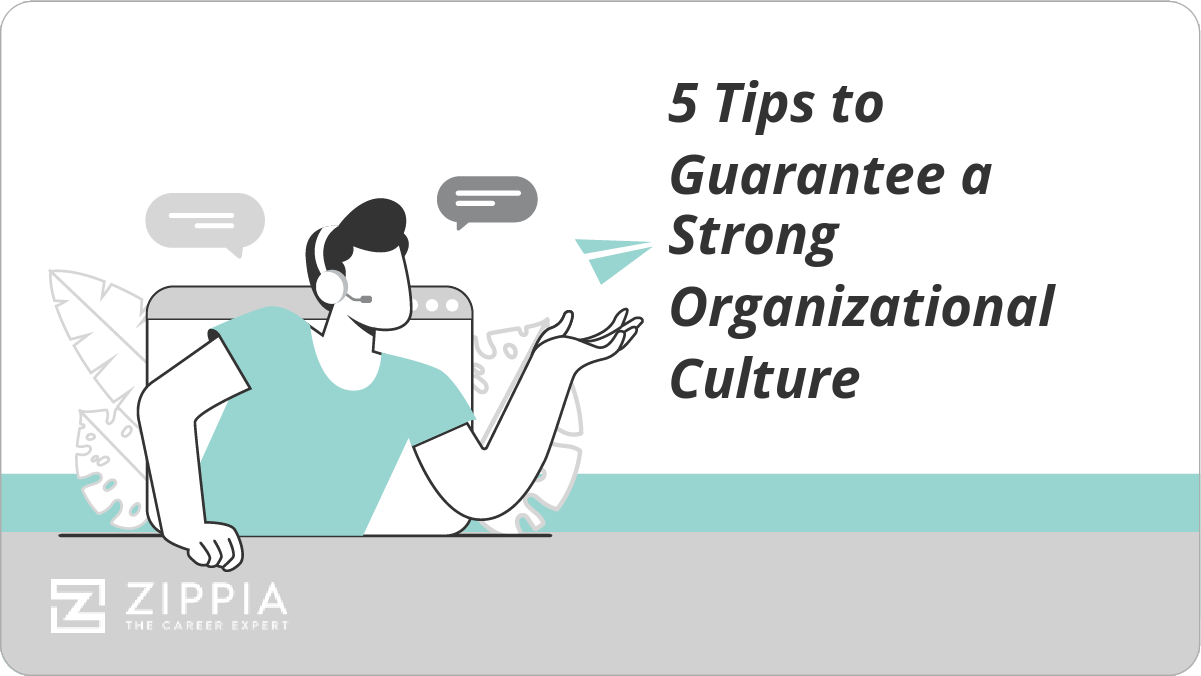As employees typically spend most of their time at work, it is given that the organization’s culture significantly affects their professional and personal lives.
A workplace should not be something that employees feel troubled to go to every day, rather something that they look forward to. While the work itself may be difficult at times, the culture should not add nor provoke stress in any of the employees. Company culture should be designed to reduce work-related stress and also be a recruiting factor as a strong company culture can help attract talent and reduce a company’s staff turnover.
Here are five things that are essential in building a strong organizational culture.
Key Takeaways:
-
To have a strong organizational culture, make sure to come up with a company mission, vision, and the values to help it be successful.
-
Make sure that you are transparent with your employees and that you have proper communication to avoid any misunderstandings.
-
Organizational culture is established with consideration and conscious intent towards the people and is built slowly over time—not just a quick decision or big list of dos and don’ts.

Company Culture vs. Organizational Culture
Most of the time, the terms corporate culture and organizational culture are used interchangeably, as both refer to the collective values, beliefs, and principles within a company.
Corporate culture and organizational culture are essential to improving business performance. However, corporate culture typically focuses on the ways of operating and functioning that lead to maximum profit while organizational culture focuses on the well-being of the employees in the company.
Aside from gaining profit, businesses must also pay attention to establishing a great organizational culture and strengthening it, as a strong organizational culture can encourage and help employees in terms of productivity, unity, and loyalty to the company.
5 Tips to Guarantee a Strong Organizational Culture
-
Mission, vision and values. Mission and vision are not mere statements composed just for formality. Between every mission and vision statement of a company are goals that aim to be achieved. Hence, it should be taken seriously, and understood by every employee.
When combined with the right values and strategies that align with the business objective, it can serve as a guideline for the mindsets and behaviors of the people to accomplish the goals together.
-
Transparency. Giving your employees an idea and sufficient information about the plans, strategies, responsibilities, and updates of the company is one indication that you place importance on your employees and that you value them.
A monthly all-hands meeting is a great way to discuss plans or achievements from the past month with everyone, while at the same time keeping them fully informed and engaged to make sure that nobody feels left behind or in the dark.
-
Communication. Along with transparency, proper communication is the key to avoiding any misunderstandings. Take advantage of the high tech communication tools available today.
Organized communication channels keep the internal process running smoothly and help in establishing a good relationship between team members. Effective communication is a two-way street, allowing your employees to voice out their opinions and ideas. Keeping everybody in the organization updated can motivate them to be proactive—reducing the risk of having conflicts and communication breakdowns.
-
Unity and collaboration. Informed employees are more involved and empowered, proving that cooperation plays a vital role in achieving unity within the team and promoting strong organizational culture through collaboration on projects.
However, personal space is also important. Instead of micromanaging, give your people the freedom to manage and execute their duties and responsibilities by letting them be creative on their own way.
-
Opportunities. People tend to get bored of their work when it becomes repetitive, meaning there is nothing new for them to achieve or do and things are no longer exciting for them. When employees think and feel that they are not learning new things or skills anymore, it triggers them to seek new opportunities outside the company.
Let them grow and gain new skills as you invest in them by providing opportunities and training that will be beneficial for both the company and the employee. This can also promote loyalty within the company as they would feel valued and important.
Organizational Culture FAQ
-
What are the characteristics of an organizational culture?
The characteristics of an organizational culture include innovation, attention to detail, and teamwork. Innovation helps encourage employees to take risks and to think creatively. As they are taking risks and being creative with their work, employees should also have attention to detail. They should be striving to be putting their best work out. It’s important that organizational culture companies put an emphasis on teamwork and collaboration because it encourages positive relationships between employees.
-
What is organizational culture?
Organizational culture is the beliefs, values, and assumptions of an organization. A strong organizational culture can encourage and help employees in terms of productivity, unity, and loyalty to the company.
-
What makes a successful company culture?
To have a successful company culture, it should have values that ever employee knows and follows. These values are what the company mission is and is branded into all of the company’s communication.
-
What is the first step in building a strong organizational culture?
The first step in building a strong company culture is to start with a purpose. To help understand what the purpose is, you should first understand why the company is coming about. Who does your business serve? Your answer to those questions should be authentic and inspirational.
Final Thoughts
In establishing a strong culture, both the employees and management understand what is expected of them and will act in accordance with the core values. Organizational culture is usually based on the type of the business and the industry it belongs to.
Many factors influence a strong organizational culture, but the five points listed above will provide a firm foundation for strengthening or improving an organization’s culture.
Every organization’s culture is unique, but a strong corporate culture can be an indication of like-minded employees as they hold the same beliefs and ethical values aligned with the business objectives and goals. However, not everybody can fit in a specific culture.
The recruitment process of the organization must be structured to attract people with the same beliefs and values that constitute its culture. No company can build a coherent culture with people that do not possess or are not willing to embrace the same beliefs and values.
An organizational culture can also serve as the company’s identity. The values and beliefs of an organization contribute to the brand image of the organization that becomes known and respected, which is why it is important for the leaders of the organization to follow the rules and regulations, as well as to be viewed as an example to all the team members.





